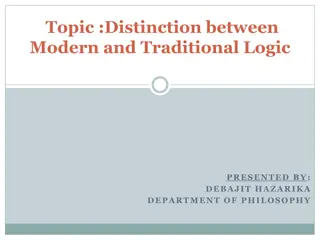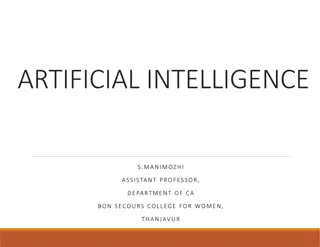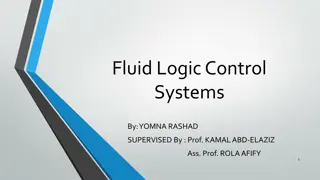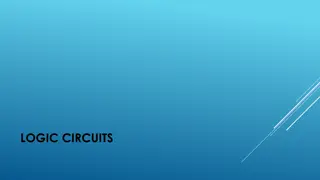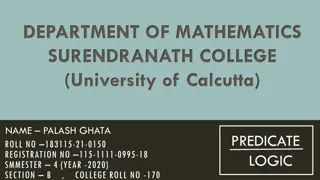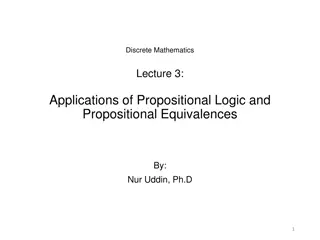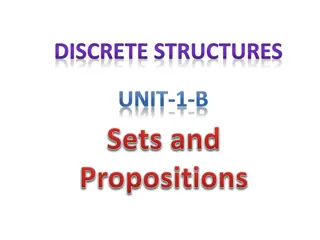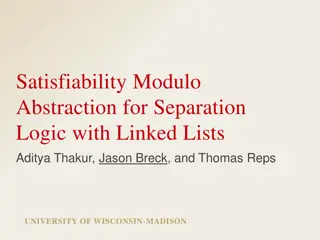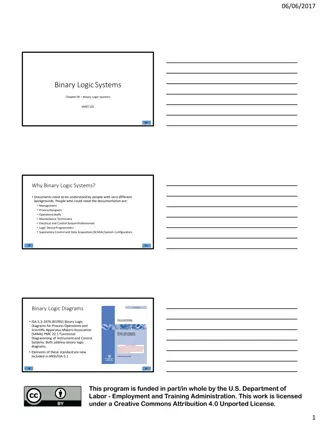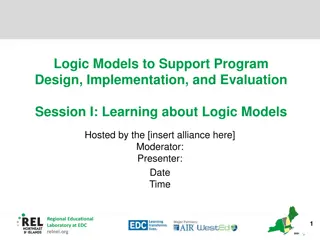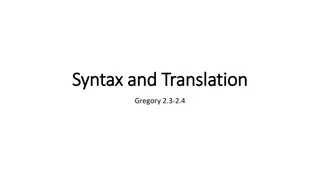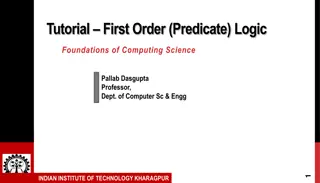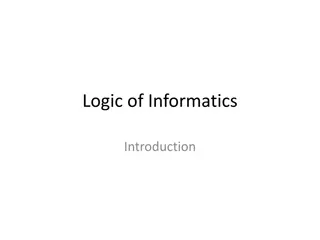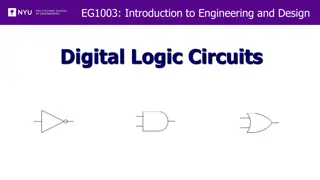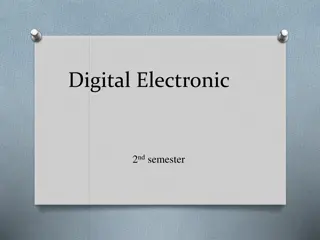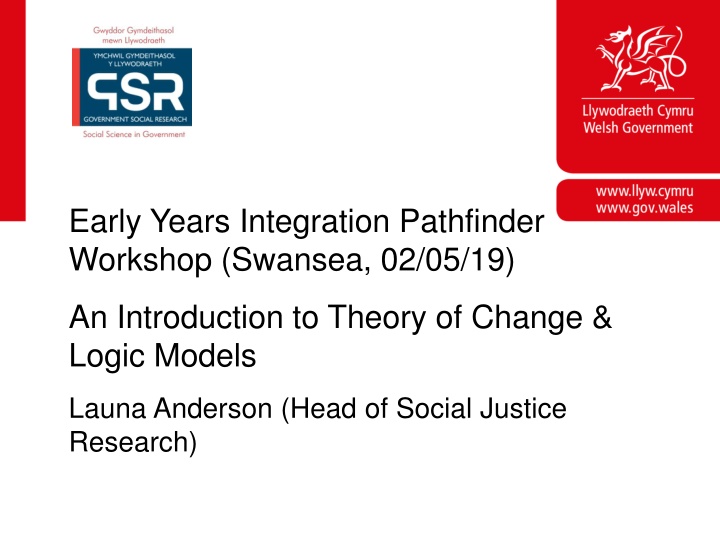
Introduction to Theory of Change & Logic Models Workshop Overview
Gain insights into theory of change concepts and logic models at the "Early Years Integration Pathfinder Workshop" led by Launa Anderson. Understand how these tools can transform Early Years Systems and drive positive outcomes. Explore the definition of a theory of change, its components, and its relevance in program evaluation and monitoring. Enhance your knowledge and analytical skills in social justice research through this engaging session.
Download Presentation

Please find below an Image/Link to download the presentation.
The content on the website is provided AS IS for your information and personal use only. It may not be sold, licensed, or shared on other websites without obtaining consent from the author. If you encounter any issues during the download, it is possible that the publisher has removed the file from their server.
You are allowed to download the files provided on this website for personal or commercial use, subject to the condition that they are used lawfully. All files are the property of their respective owners.
The content on the website is provided AS IS for your information and personal use only. It may not be sold, licensed, or shared on other websites without obtaining consent from the author.
E N D
Presentation Transcript
Early Years Integration Pathfinder Workshop (Swansea, 02/05/19) An Introduction to Theory of Change & Logic Models Launa Anderson (Head of Social Justice Research)
Session Purpose Provide an introduction to these concepts, but it is not exhaustive and it is not formal training! Build your knowledge and confidence around the use of theory of change tools. To provide an opportunity for discussion and reflection around the programme theory / logic model components for Early Years System Transformation in your area. Encourage you to take this thinking back to your areas and how you could apply it. Provide a signpost to some resources you can use. Gwasanaethau Gwybodaeth a Dadansoddi Think about what support you might need. Knowledge and Analytical Services
What is a theory of change? a story about how the activities included in a project are going to lead to their intended outcomes early on, and in the intermediate and the longer term. Jim Connell and Anne Kubisch (2002) A program is a theory and an evaluation is its test. In order to organize the evaluation to provide a responsible test, the evaluator needs to understand the theoretical premises on which the program is based. Carol Weiss (1972) Gwasanaethau Gwybodaeth a Dadansoddi Knowledge and Analytical Services
Theory of Change definition A Theory of Change is essentially a comprehensive description and illustration of how and why a desired change is expected to happen in a particular context. It is focussed in particular on mapping out what has been described as the missing middle between what a programme or change initiative does and how these lead to desired goals being achieved. It does this by identifying long-term goals and then works backwards to identify all the conditions (outcomes) that must be in place for the goals to occur. Resource: Center for Theory of Change Gwasanaethau Gwybodaeth a Dadansoddi Knowledge and Analytical Services
Theory of change definitions continued A programme theory can be used to provide a conceptual framework for monitoring, for evaluation, or for an integrated monitoring and evaluation framework. A programme theory can be a very useful way of bringing together existing evidence about a programme, and clarifying where there is agreement and disagreement about how the programme is understood to work, and where there are gaps in the evidence. Source: Better Evaluation Gwasanaethau Gwybodaeth a Dadansoddi Knowledge and Analytical Services
Theory of change definitions continued A theory of change explains how interventions are understood to contribute to a chain of results that produce the intended or actual impacts. Impacts can be positive or negative. It can also show the other factors which contribute to producing impacts, such as context and other projects and programmes. Gwasanaethau Gwybodaeth a Dadansoddi Knowledge and Analytical Services
Logic Model definition Different types of diagrams can be used to represent a theory of change. These diagrams are often referred to as logic models, as they show the overall logic of how the intervention is understood to work. The logic model is a graphical way of describing the theory of change not the theory of change itself. Gwasanaethau Gwybodaeth a Dadansoddi Knowledge and Analytical Services
Developing a Theory of Change can help to Reach consensus on how something is intended to work and identify areas of disagreement or uncertainty. Communicate ideas to stakeholders about your intentions and the logic behind your approach. Make sense of other people s ideas and replay them in a logical way. Make links between components of a programme/policy/initiative. Identify alternative explanations and make sense of unintended results or counterintuitive findings. Clarify who is responsible for what and what is actually feasible (managing expectations). Compare the observed reality to something and refine the theory. Gwasanaethau Gwybodaeth a Dadansoddi Knowledge and Analytical Services
Simple example of a theory of change logic model Gwasanaethau Gwybodaeth a Dadansoddi Knowledge and Analytical Services
Logic model a worked example Gwasanaethau Gwybodaeth a Dadansoddi Knowledge and Analytical Services
A simple example of a logic model Gwasanaethau Gwybodaeth a Dadansoddi Knowledge and Analytical Services
Logic models can: be developed before a programme starts, and used for planning, to develop monitoring systems, and for evaluation and reporting be developed during implementation and even after a programme has finished be developed by programme staff, an external evaluator, by programme designers, or collaboratively with a community or user group be a very useful way of bringing together existing evidence about a programme, and clarifying where there is agreement and disagreement about how the programme is understood to work, and where there are gaps in the evidence change as we learn more and refine our theory of change. They need not be set in stone and there needn t be a single view. Gwasanaethau Gwybodaeth a Dadansoddi Knowledge and Analytical Services
Logic models Articulating mental models talking individually or in groups with key informants (policy-makers, service deliverers and service users) about how they understand an intervention works. Back-casting working backwards from a desirable future, to the present in order to determine the feasibility of an idea. Using existing evidence using the findings from previously conducted evaluations and research, or even anecdotal/descriptive evidence. Project/programme documents and guidance to develop the model during implementation. Gwasanaethau Gwybodaeth a Dadansoddi Knowledge and Analytical Services
Key components of a Logic Model Inputs Outputs Outcomes Inputs Certain resources are needed to operate a programme. Activities Planned and delivered activities using these resources. Outputs If the activities are accomplished certain things will be delivered. Intermediate outcomes If you accomplish the activities to the extent you wish then recipients will benefit in a certain way. Impacts The achieved benefits will lead to wider societal impacts. Assumptions External Factors Gwasanaethau Gwybodaeth a Dadansoddi Knowledge and Analytical Services
External Factors & Assumptions External factors are outside the control of the programme but can influence the way in which it works. Think here of systems, culture, economic factors, demography, political backdrop. Assumptions, implicit and explicit beliefs about the way things work. Also values and moral imperatives. Faulty assumptions can be the reason why something doesn t work. Gwasanaethau Gwybodaeth a Dadansoddi Knowledge and Analytical Services
Group discussions In your tables, consider what you think the theory of change for the Early Years System in your local area is? Consider the logic model components as a way to articulate the theory of change. What are the assumptions that you hold? Should these be challenged? What practical steps would you need to take to be able to do this in your local area? Do you think this approach would work for you? What support do you think would be helpful? Gwasanaethau Gwybodaeth a Dadansoddi Knowledge and Analytical Services
Resources The Magenta Book (HM Treasury) - https://www.gov.uk/government/publications/the-magenta-book Better Evaluation - https://www.betterevaluation.org/ Public Health England Guidance on Logic Models - https://www.gov.uk/government/publications/evaluation-in-health- and-well-being-overview/introduction-to-logic-models#introduction- to-logic-models Gwasanaethau Gwybodaeth a Dadansoddi Knowledge and Analytical Services
Contact Launa.Anderson@gov.wales / Launa.Anderson@llyw.cymru SocialJusticeResearch@gov.wales / YmchwilCyfiawnderCymdeithasol.llyw.cymru Gwasanaethau Gwybodaeth a Dadansoddi Knowledge and Analytical Services

